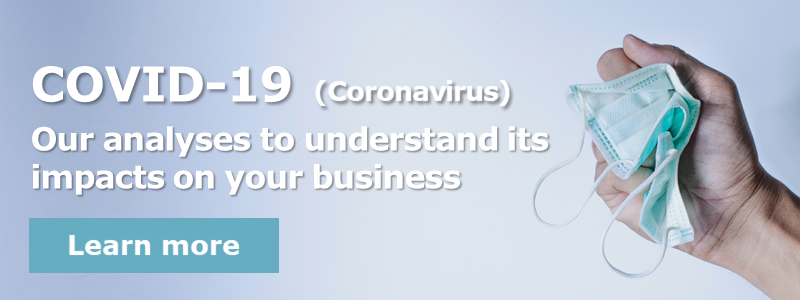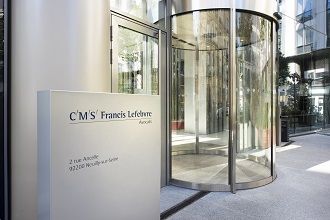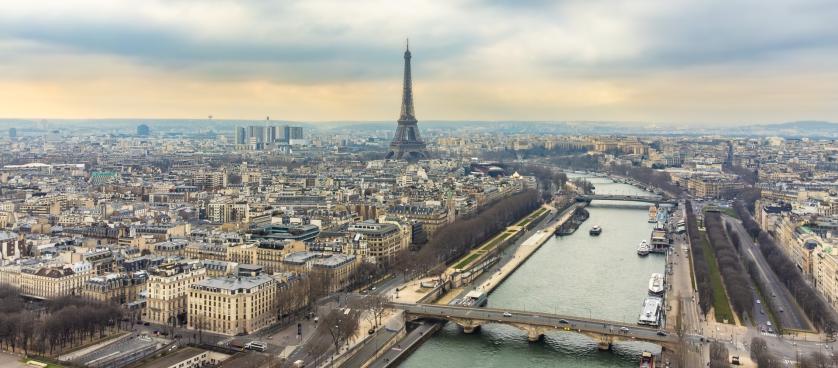
To overcome the shortage of masks and to ensure their availability and priority access to health professionals and patients facing the health crisis related to Covid-19, a temporary requisition of masks has been decided in France in March 2020 by successive decrees of the Prime Minister.
Following a decree of 11 May 2020, the requisitioning of masks may now be decided pursuant to a more general provision relating to any health or medico-social institution as well as [to] any goods, services or persons necessary for the operation of such institutions, including health professionals.
By decree No. 2020-247 of 13 March 2020, which was repealed and replaced by decree No. 2020-293 of 23 March 2020 published in the Official journal of the French Republic on 24 March (articles 12 and 13), the Prime Minister had originally ordered the requisition of stocks until 31 May 2020:
- of respiratory protection masks (masques de protection respiratoire) of types FFP2, FFP3, N95, N99, N100, P95, P99, P100, R95, R99, R100 held by any legal person governed by public or private law; and
- spray masks (masques anti-projections) complying with standard EN 14683 held by undertakings that manufacture or distribute them,
- this being specified that masks produced between the publication of the above-mentioned decrees and the day when the health state of emergency would cease would be requisitioned to the same end until that day.
However, decree No. 2020-545 of 11 May 2020, published the same day in the Official Journal of the French Republic, repealed the decree of 23 March 2020 by its Article 26, without reiterating any specific measure of requisition of masks. Decree No. 2020-545 has within the next hours been repealed and replaced by Decree No. 2020-548, which was also signed on 11 May and published in the Official Journal of the French Republic on 12 May. From 11 May 2020 onwards, we are of the view that this requisition may in any case be implemented, by general or individual measures, on the basis of the more general provisions set forth in article 18 I. concerning the necessary requisition of any health institution or medico-social institution as well as any goods, services or persons necessary for the operation of these institutions, in particular health professionals. The implementation of such a requisition raises a number of questions and remarks.
Legal framework for health requisitioning
Created by Law No. 2004-806 of 9 August 2004 on public health policy and now referred to in Articles L.3131-8 and L.3131-9 of the French Public Health Code, the necessary requisitions of all goods and services may be decided by the local State representative (préfet), on the proposal of the Director General of the regional health agency, if it is justified by the influx of patients or victims or the health situation (French Public Health Code, Art. L.3131-8). This measure may also be ordered by the Prime Minister when the nature of the health situation or the scale of the influx of patients or victims justifies it (French Public Health Code, Art. L.3131-9).
The emergency Law n° 2020-290 of 23 March 2020 aimed at dealing with the Covid-19 epidemic also contains provisions on this subject, which amended Title III of Book I of Part III of the French Public Health Code, whose title is now "Serious threats and health crises". The aim of this Law was, on the one hand, to supplement the existing provisions of articles L.3131-1 and following (contained in Chapter I: "Health threats") and, on the other hand, following these provisions, to create a new Chapter I bis entitled "health state of emergency" (cf. Title I of the Law of 23 March 2020, relating to the health state of emergency).
Not complying with these measures is punishable by six-month imprisonment and a fine up to € 10,000, according to the provisions of Article L.3136-1 of the French Public Health Code.
The provisions of the French Public Health Code do not, however, provide any details as to the practical arrangements for implementing these requisitions.
In comparison, the provisions of the French Defence Code are more precise. Its Articles L.2213-1 and following and R.2213-1 and following apply to the requisitioning of goods and services to meet the country's needs in the cases provided for by law.
In particular, Article R.2213-4 of the French Defence Code refers to a requisition order, which must include the nature, quantum or duration of the service, the designation of the service provider, the date and place of the requisition. It should be noted that the decree of 11 May 2020 does not contain any details relating to every single of these elements, which may raise questions about the practicalities for implementing this measure for the undertakings concerned. This can however be probably explained by the fact that, contrary to what was provided by the decree of 23 March 2020, the requisitions referred to in Article 18 I. of the decree of 11 May 2020 remain a faculty left to the local State representative (préfet) in the département, which they may implement by general or individual measures. In the event of a requisition actually ordered by the local State representative, the measure should therefore contain the necessary details.
Moreover, as Article L.3131-8 of the French Public Health Code was previously formulated, there was room for doubt as to the compensation conditions applicable to the health requisition. The emergency Law aimed at dealing with the Covid-19 epidemic has removed the uncertainty by inserting a sentence into Article L.3131-8 of the French Public Health Code: the compensation provided for in Article R.2234-1 of the French Defence Code applies to requisitions in health matters. Consequently, the person subject to a requisition for health reasons can benefit from compensation, limited to the effective loss, i.e. the material, direct and certain loss, that the requisition imposes on them – which excludes any net benefit or profit.
What about imported masks?
Following an amendment of the decree of 13 march 2020 made initially by decree No. 2020-281 of 20 March 2020 and repeated in the above-mentioned decree dated 23 March, it was specified that the requisition would only be applicable to stocks of masks that were already present on the national territory and to masks produced on the national territory.
In principle, stocks imported later than 21 March 2020 – the date on which the decree of 20 March 2020 was published in the Official Journal of the French Republic, since it was immediately enforceable – were consequently not covered by the mask requisition. Undertakings could therefore escape requisitioning for masks they would bring from abroad, provided of course that they identify foreign suppliers capable of providing them with masks in the current context.
However, by exception, stocks of masks imported above a threshold of five million units per quarter per legal entity could be subject to total or partial requisition by order of the French Minister of Health. In such a case, silence kept by the said Minister more than 72 hours after receipt of an import request sent by the relevant legal entity or the importer would prevent the requisition.
From 11 May 2020, as the decree of 11 May 2020 no longer includes any specific provision concerning the requisition of masks, and, correlatively, any specific provision in relation to imported masks, it seems that these masks are no longer exempt from requisition, even below the threshold previously provided for. It therefore seems possible for the French State local representative (préfet) to order, by a general or individual measure, the requisition of masks, whether they have been produced on the French territory or, on the contrary, imported.
The raw materials necessary for the production of masks are still specifically referred to
Pursuant to Article 18 II. of the decree of 11 May 2020, as this was previously provided for in Article 12-1 II. of the decree of 23 March 2020, the French State local representative (préfet) may proceed to requisition of the raw materials necessary for the production of the categories of masks mentioned in the joint decree (arrêté) of the ministers responsible for health and the budget referred to in K bis of Article 278-0 bis of the General Tax Code, i.e. an arrêté of 7 May 2020.
The concerned masks are:
- masks for sanitary use
- respiratory protection masks of types FFP1, FFP2 or FFP3 complying with standard EN 149+A1:2009 or a foreign standard recognised as equivalent for these classes, provided that they do not include an exhalation valve;
- spray masks, as defined by standard EN 14683+AC:2019 or by a foreign standard recognised as equivalent;
- masks intended for non-sanitary uses meeting the characteristics provided for by the arrêté of 7 May 2020.
What can you do in practice to find out the impact of the decree of 11 May 2020 for your undertaking?
In practice, since the decree of 11 May 2020 does not include any specific provision relating to the requisition of masks, should the regional health agency and/or the préfet in the département where your company is established informs you of their intent to requisition your masks, it seems advisable that an amicable agreement – as opposed to a unilateral requisition order issued by the French authorities – be sought by your company in order to agree, when possible, on a quantity of requisitioned masks – or raw materials – that would both meet the country's needs and allow your company to maintain its economic activity.
Report: impacts of Covid-19 (Coronavirus)
Our law firm offers you its legal assistance to address all the impacts of Covid-19 (Coronavirus) on your business. Read our dedicated report below.
For more information on our law firm:
Our law firm is a leading international business law firm. Its deep roots, unique positioning and highly recognised expertise enables it to deliver innovative, high value-added solutions in all areas of the law.










